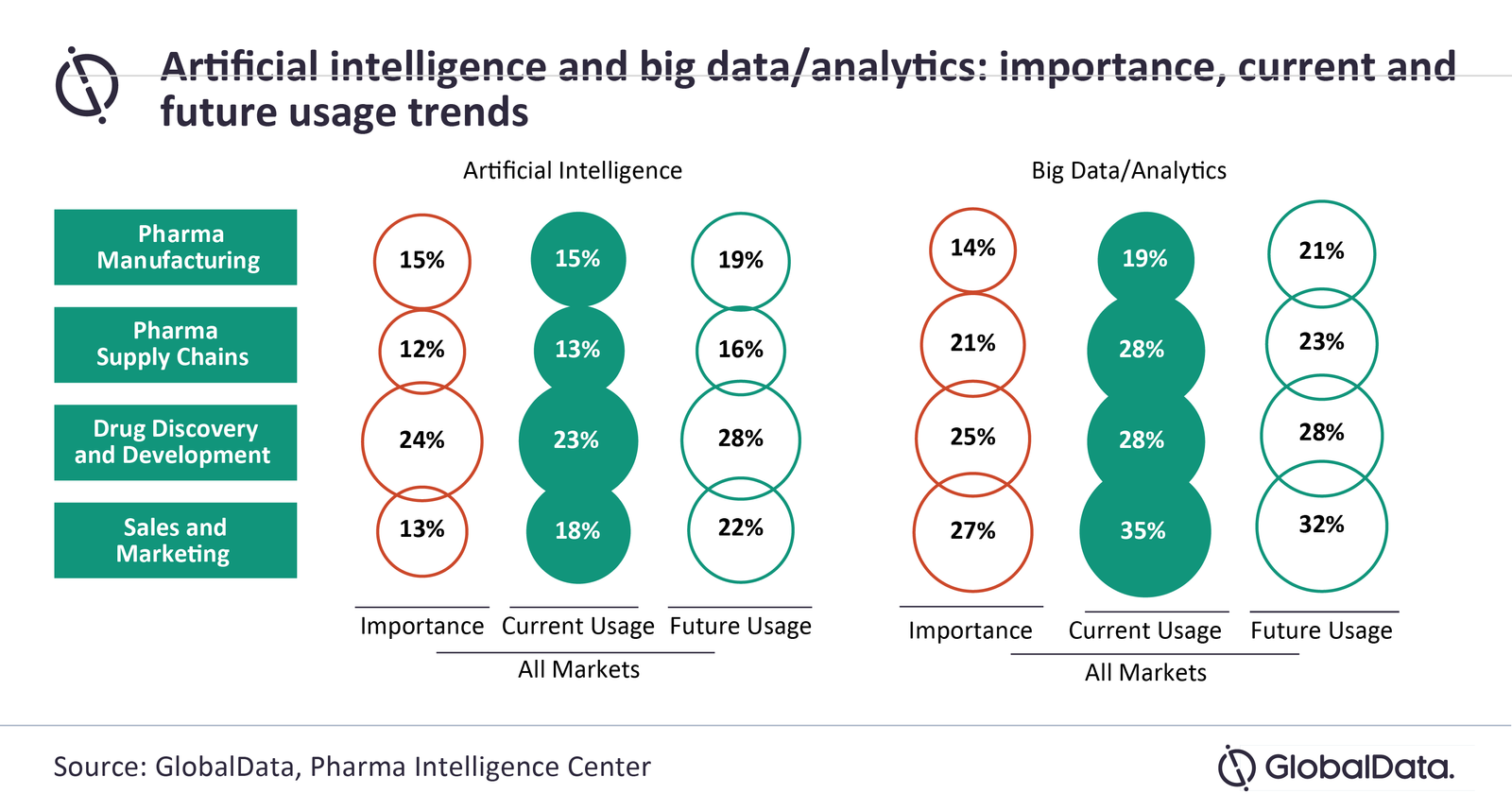
Photo Credit: GlobalData
The COVID-19 pandemic has given businesses an unprecedented opportunity to implement technology-fueled changes to the way they operate. AI and big data/analytics have been identified by healthcare industry professionals as the top technologies that will transform pharmaceutical drug discovery and development processes, as well as marketing and sales, according to a survey by GlobalData, a leading data and analytics company.
In a GlobalData’s latest report, ‘Smart Pharma’, healthcare industry professionals revealed that 28% of companies will be using AI and big data/analytics to optimize drug discovery and development processes in the next two years, while 32% would be relying on big data/analytics to streamline sales and marketing.
AI and big data are linked in healthcare. GlobalData notes that use of the former will continue to grow rapidly - especially when considering the amount of data that can now be mined from patient records and registries, real-world evidence, sales and marketing, and connected devices. It can also be used to design treatment plans, develop drugs, or improve clinical trial outcomes.
Urte Jakimaviciute, Senior Director of Market Research at GlobalData, comments: “In the drug discovery and development process, the effective analysis of big data can enhance research and development (R&D) productivity and effectiveness through early and more targeted problem solving and decision-making mechanisms. By supporting the analysis of big data, AI has the potential to rapidly accelerate R&D timelines, making drug development cheaper and faster.”
The COVID-19 pandemic gave a significant boost to data-generating areas of healthcare such as wearables, electronic healthcare records, remote patient monitoring, and mobile apps. The increasing use of social and digital media tools among physicians and patients has also contributed to increasing volumes and variety of information that the companies can access, collect, and analyze.
“While big data and AI are often touted as the innovations that can improve nearly every element of the pharma value chain, integration and data quality remains core focuses. AI requires high-quality data, and the more data AI receives, the more accurate and efficient it can become. However, if companies do not have full visibility into data quality, they cannot trust the results that AI generates.“




